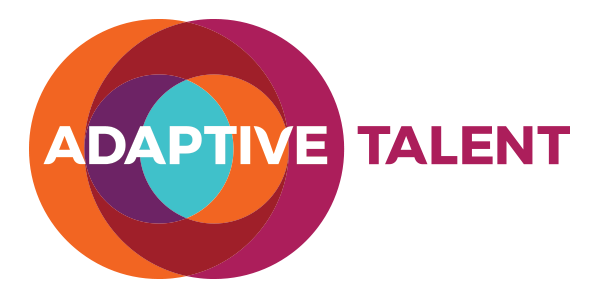HR Professor Dave Ulrich from the University of Michigan School of Business shared the results of a study identifying the most important capabilities for HR people. They surveyed 10,000 line managers and 10,000 HR professionals and the results are pretty compelling.
Essentially, at the core, is an HR person’s own credibility and her/his ability to influence and work with others. The Strategic Positioner skill is deeply understanding your organization’s proposition and value with its stakeholders and then developing capabilities, championing and sustaining change, aligning people programs, nurturing culture, and leveraging technology in service of your strategic objectives.
Here are the specific competency descriptions:
Strategic Positioner: High performing HR professionals think and act from the outside/in. They are deeply knowledgeable of and able to translate external business trends into internal decisions and actions. They understand the general business conditions (e.g., social, technological, economic, political, environmental, and demographic trends) that affect their industry and geography. They target and serve key customers of their organization by identifying customer segments, knowing customer expectations, and aligning organization actions to meet customer needs. They also co-create their organizations’ strategic responses to business conditions and customer expectations by helping frame and make strategic and organization choices.
Credible Activist: Effective HR professionals are credible activists because they build their personal trust through business acumen. Credibility comes with HR professionals do what they promise, build personal relationships of trust, and can be relied on. Being a trust advisor helps HR professionals have positive personal relationships. It means to communicate clear and consistent messages with integrity. As an activist, HR professionals have a point of view, not only about HR activities, but about business demands. As activists, HR professionals learn how to influence others in a positive way through clear, consistent, and high impact communications. Some have called this HR with an attitude. HR professionals who are credible but not activists are admired, but do not have much impact. Those who are activists but not credible may have good ideas, but not much attention will be given to them. To be credible activists, HR professionals need to be self-aware and committed to building their profession.
Capability Builder: An effective HR professional melds individual abilities into an effective and strong organization by helping to define and build its organization capabilities. Organization is not structure or process; it is a distinct set of capabilities. Capability represents what the organization is good at and known for. HR professionals should be able to audit and invest in the creation of organizational capabilities. These capabilities outlast the behaviour or performance of any individual manager or system. Capabilities have been referred to as a company’s culture, process, or identity. HR professionals should facilitate capability audits to determine the identity of the organizations. Such capabilities include customer service, speed, quality, efficiency, innovation, and collaboration. One such emerging capability of successful organizations is to create an organization where employees find meaning and purpose at work. HR professionals can help line managers create meaning so that the capability of the organization reflects the deeper values of the employees.
Change Champion: As change champions, HR professionals make sure that isolated and independent organization actions are integrated and sustained through disciplined change processes. HR professionals make an organization’s internal capacity for change match or lead the external pace of change. As change champions, HR Professionals help make change happen at institutional (changing patterns), initiative (making things happen), and individual (enabling personal change) levels. To make change happen at these three levels, HR professionals play two critical roles in the change process. First, they initiate change which means that they build a case for why change matters, overcome resistance to change, engage key stakeholders in the process of change, and articulate the decisions to start change. Second, they sustain change by institutionalizing change through organizational resources, organization structure, communication, and continual learning. As change champions, HR professionals partner to create organizations that are agile, flexible, responsive, and able to make transformation happen in ways that create sustainable value; in other words they’re adaptable.
Human Resource Innovator and Integrator: Effective HR professionals know the historical research on HR so that they can innovative and integrate HR practices into unified solutions to solve future business problems. They must know latest insights on key HR practice areas related to human capital (talent sourcing, talent development), performance accountability (appraisal, rewards), organization design (teamwork, organization development), and communication. They must also be able to turn these unique HR practice areas into integrated solutions, generally around an organization’s leadership brand. These innovative and integrated HR practices then result in high impact on business results by ensuring that HR practices maintain their focus over the long run and do not become seduced by HR “flavor the month” or by another firm’s “best practices”.
Technology Proponent: In recent years, technology has changed the way in which HR people think and do their administrative and strategic work. At a basic level, HR professionals need to use technology to more efficiently deliver HR administrative systems like benefits, payroll processing, healthcare costs, and other administrative services. In addition, HR professionals need to use technology to help people stay connected with each other. This means that technology plays an increasingly important role in improving communications, do administrative work more efficiently, and connecting inside employees to outside customers. An emerging technology trend is using technology as a relationship building tool through social media. Leveraging social media enables the business to position itself for future growth. HR professionals who understand technology will create improved organizational identity outside the company and improve social relationships inside the company. As technology exponents HR professionals have to access, advocate, analyze and align technology for information, efficiency, and relationships.
—
Adaptive Talent is a talent consultancy designed to help organizations achieve amazing results and ongoing adaptability. Founded in 2008 and based in Vancouver, Canada we offer retained search, assessments, total rewards consulting, training, leadership coaching and development programs, and culture & organizational development consulting.

